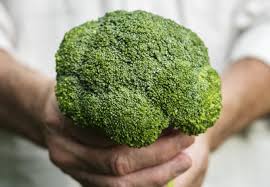The broccoli and Brussels sprouts that often get pushed to the edge of the plate might aid in reducing the risk of colon cancer (CC). The study is published in ‘BMC Gastroenterology’.
Among the many factors that shape CC risk, diet is one of the most powerful and, importantly, the one humans can control. A recent systematic review found that people who consumed more cruciferous vegetables, such as broccoli, cabbage, cauliflower or Brussels sprouts, had a 20 per cent lower risk of colon cancer compared to those who consumed less, reported the ‘MedicalXpress’.
The researchers analysed data from over 17 studies, comprising a total participant pool of 639,539, with 97,595 cases of colon cancer. Including 20–40 grams of cruciferous veggies has the best protective effect per gram.
Apart from being a rich source of beneficial phytochemicals, including flavonoids, fiber, vitamin C, and carotenoids, cruciferous vegetables are also packed with glucosinolates. When chewed, these compounds break down into bioactive isothiocyanates, particularly sulforaphane (SFN)—a molecule responsible not only for the vegetables’ strong, distinct odour but also for their protective, chemopreventive effects.















